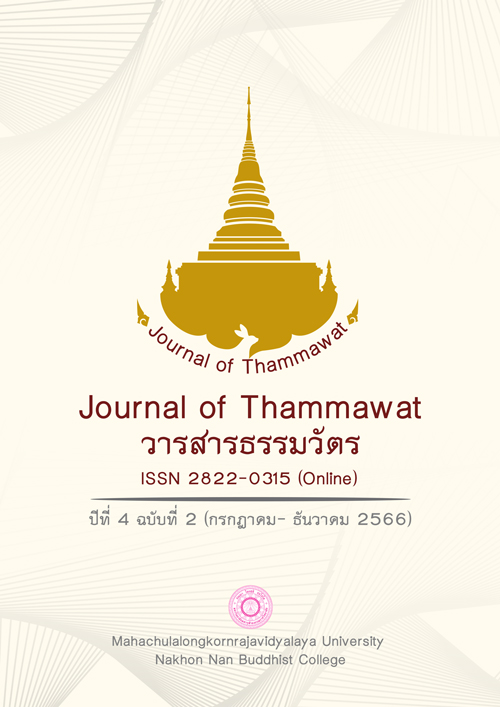Model of a Participatory Learning Management Process by Using Local Wisdom Learning Resources as a Base for Lifelong Learning at All Ages in Sukhothai Province
Main Article Content
Abstract
The objectives of this article were: 1) to study an appropriate learning management model using the local wisdom learning resources as a base for learning throughout life at all ages in Sukhothai province, 2) to develop a participatory learning management model by using local wisdom learning resources as a base for lifelong learning at all ages in Sukhothai province. The researcher used the research and development method by collecting data by a combination of Qualitative data collection supplemented with quantitative data with a data collection tool: document analysis, area survey, in-depth interviews, observation, group discussions, and knowledge assessments. The data were analyzed by content analysis, descriptive statistics were frequency, mean.
The results of the study found that: 1) the analysis of values and processes of wisdom learning had been lost from the way of life in the field of learning management of inherited wisdom through generations by acting with the conclusion of conservation. The conclusion of the conservation of wisdom value should be included in the school curriculum, 2) the learning management model of educational institutions creates competency-based curriculum that was linked to development from early childhood to the elderly from formal education, non-formal education and informal education by using learning resources in the community. The results of the course experiment showed that the learning of the learners who participated in the post-study activities was higher before studying with statistical significance at the .05 level, 3) education and social professionals verify the possible validity of the learning management model and then be valid, appropriate and possible.
Article Details

This work is licensed under a Creative Commons Attribution-NonCommercial-NoDerivatives 4.0 International License.
References
ชวนี ทองโรจน์. (2554). การวิจัยวัฒนธรรมเพื่อพัฒนาภูมิปัญญาท้องถิ่น. วารสารวิจัยมหาวิทยาลัยราชภัฎสวนดุสิต, 7(1), 129-138.
พยุง ใบแย้ม, พนม พงษ์ไพบูลย์ และกรัณย์พล วิวรรธมงคล. (2558). การพัฒนารูปแบบการใช้แหล่งเรียนรู้ในท้องถิ่นที่เหมาะสมเพื่อการจัดการศึกษาในระดับประถมศึกษา. วารสารสารสนเทศมหาวิทยาลัยราชภัฏบ้านสมเด็จเจ้าพระยา, 14(1), 23-33.
ภานุวัฒน์ ภักดีวงศ์. (2563). ผังหลักสูตรภูมิปัญญาสังคโลกในพื้นที่ตำบลเมืองเก่าจังหวัดสุโขทัย. ม.ป.ท.: ม.ป.พ.
มหาวิทยาลัยรามคำแหง. ภูมิปัญญาไทย. สืบค้นเมื่อ 14 มกราคม 2563, จาก http://www.info.ru.ac.th/ province/Sukhotai/cul3.htm.
สุมนทิพย์ บุญสมบัติ. (2554). การใช้แหล่งเรียนรู้และภูมิปัญญาในจังหวัดนนทบุรีเพื่อพัฒนาหลักสูตรสถานศึกษา. วารสารศึกษาศาสตร์มหาวิทยาลัยสุโขทัยธรรมาธิราช, 2(1), 1-7.
สุเมษย์ หนกหลัง. (2558). กิจกรรมเสมือนชุมชนเพื่อการเรียนรู้บทบาทหน้าที่ในชุมชน:การบูรณาการ แนวคิดสู่การปฏิบัติ. วารสารวิจัยและพัฒนาหลักสูตร มหาวิทยาลัยศรีนครินทรวิโรฒ, 5(2), 1-13.


